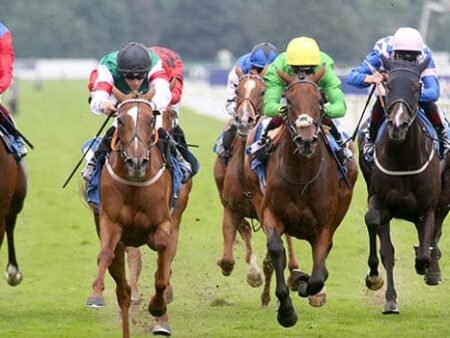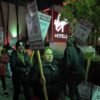The Federal Regional Court of the First Region (TRF1) in Rio de Janeiro has ruled to suspend the license for Rio de Janeiro State Lottery (Loterj) brands from operating outside the state following a legal battle over gambling regulations. TRF1 president João Batista Moreira’s decision overturned a previous ruling by the Federal District Court that allowed Loterj-authorized operators to expand their reach beyond the borders of Rio.
The Case Centers Around Conflicting Legislation
The ruling came in response to an appeal filed by the attorney general’s office (AGU), which aimed to reassert the federal government’s authority over gambling regulation throughout Brazil. This development stems from an ongoing debate on whether Loterj-licensed brands should be confined to operations within Rio de Janeiro, as stipulated in the national regulations.
Last week, an injunction by the Supreme Federal Court allowed Loterj brands to operate outside Rio despite Normative Ordinance No 1,475, which mandates that operators hold national licenses for activities across the country. The AGU’s appeal challenged this authorization, arguing that Loterj’s current operational model conflicted with national betting laws.
The AGU appeal argues that allowing Loterj brands to operate nationwide without a proper license could lead to double standards and a lack of regulatory oversight. The Ministry of Finance has recently begun the licensing process for operators ahead of the nation’s regulated market launch. However, certain operators have chosen to retain their licenses exclusively under Loterj, bypassing national regulatory requirements.
Loterj Drew Attention to Its Significant Tax Contributions
In a statement, Loterj said the court’s decision would not impact its operations within Rio de Janeiro or those of its licensed entities. The lottery highlighted that its operations are codified by paragraph eight of article 35-A of Law 14,790 rather than temporary ordinances or injunctions. The organization emphasized that its operations aligned with state laws, and it maintained strict control over its licensees.
Loterj also criticized the federal government’s regulatory efforts, noting that companies licensed by the Ministry of Finance’s Secretariat of Prizes and Betting were yet to pay taxes. Loterj argued that the state’s legalized betting operations have already provided Brazil with extensive revenue, significantly contributing to the state of Rio de Janeiro’s bottom line.
It is important to emphasize that with every real collected by the state of Rio de Janeiro through legalized betting, the union receives eight times more in taxes.
Loterj statement
The suspension of Loterj’s license to operate outside Rio de Janeiro will remain until the court resolves the AGU’s appeal. This case comes at a critical juncture as the federal government gears up to enforce its new updated regulations on 1 January 2025. Only companies with applications submitted before the 30 September deadline can stay in business during the transition period before the new rules kick in.










